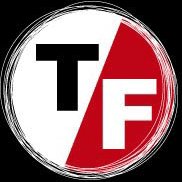I went into
No Impact Man expecting the story of a man moving completely off the grid, but was more interested to learn Colin Beaven and family's year-long experiment would take place in their NYC apartment. Their year of using less suggests many "necessities" are really no more than "habits." Part of the experiment is clearly publicity stunt, and the family and the film acknowledge that.
As with so many good docs, an even more compelling story emerges underneath the premise. Beaven's wife Michelle is much more reluctant about the experiment, while also trying to convince Beaven to have a second child. Their quiet battles are a poignant picture of the compromises, concessions and gamesmanship in a marriage.
The look of the film seems geared towards television viewing, the focus on clarifying the information. Though, at the Q&A, directors Laura Gabbert and Justin Schein said they used no artificial lighting, in an effort to subscribe to the No Impact ethos themselves.
I also caught two of the festival's "secret screenings."
Secret Screening Silver is a gorgeous looking film. The director's camera exposes and contextualizes things his subjects may not even realize themselves.
As with No Impact Man, the premise (following three elderly greeters of returning soldiers) is more of a framing device for an exploration of aging and loneliness. When greeter Bill confesses his life doesn't mean anything to him, so he tries to make it meaningful for someone else, the note of despair rings as loud as the note of service. As moving as the majority of the film is, by the end it feels like the filmmakers are wallowing in this matter-of-fact melancholy.
A few things about
Secret Screening Green kept me from fully investing in the film or its characters. It is a stark look at two Brazillian boys and their families' lives of poverty. The compositions are rich and cinematic, particularly in framing this simultaneously agrarian and industrial world.
But long atmospheric sequences are punctuated with stagey dialogue between characters. These scenes often begin with pre-set camera moves to both characters in perfect frame, engaging in dialogue with self-conscious exposition. I have no categorical problem with a director staging, coaching or otherwise manipulating a scene. But in a film which seems so intent on exposing the reality of these boy's lives, it didn't feel right to me.
That said, many people at my screening, including a good friend of high cinematic standards, were quite moved by the film.
 I'm a bit behind on this, but I recently learned Warren Buckland, my ol' film studies prof., has edited a new book, Puzzle Films: Complex Storytelling in Contemporary Cinema.
I'm a bit behind on this, but I recently learned Warren Buckland, my ol' film studies prof., has edited a new book, Puzzle Films: Complex Storytelling in Contemporary Cinema.

